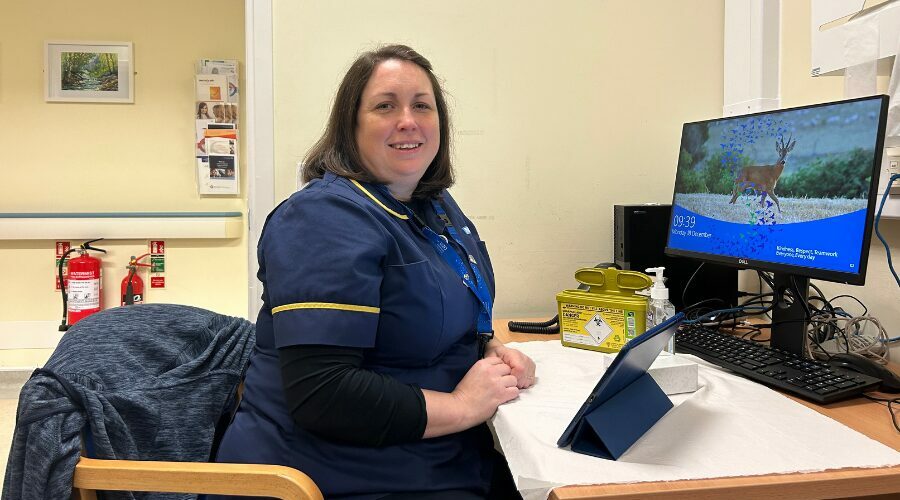
Spotlight
Charlotte Fellows explores students’ experiences of childhood immunisation
We all remember those days at school when, perhaps sandwiched between double maths and science, it’d be our turn to visit the school nurse for our vaccinations.
For most of us this would simply consist of a few kind words from the nurse, followed by a sharp prick and a dollop of cotton wool…but for others it’s much more terrifying, especially those with needle phobia!
With this in mind, our immunisation nurse Charlotte Fellows set about finding out how we could make this process a little more bearable for children.
She began a project as part of the Chief Nurse Research Fellowship that sought feedback from school children about what they really thought about having a vaccination, and whether there was anything that could improve their experience.
Charlotte works in our school-aged immunisation nursing team – commonly known as SAINT – which gives vaccinations to students, mainly in schools, but also in community clinics and sometimes at a child’s home too.
“The majority of our injectable vaccines are given at secondary school, and I wanted to check whether as a team we’re giving the best service possible to those students,” she explains. “I wanted to look at what works for them and what doesn’t, very much listening to their experiences.
“Firstly, I looked into previous research published on vaccinations, and found that there wasn’t really much from a student’s perspective, with most only taking into account the thoughts of parents or healthcare professionals.
“In our job we have such a short interaction with these students, but it can still really affect the way they access healthcare services in the future, and also the extent they trust them. This means that it’s vital that we give them a good experience at that age.
“I developed a student feedback questionnaire that has a QR code for children to use, so we could analyse the data online and see what areas they felt we could improve on, such as distraction techniques and better health promotion.
“Most of the questions were multiple choice with smiley face options, asking whether they felt listened to, what their wait time was like, and whether they understood what vaccination they were having.”
Charlotte was thrilled with the response from both students and teachers and captured lots of useful feedback during immunisation sessions.
“It was so good to find out that on the whole students felt we were doing a good job,” she continues. “In fact, the majority of students told us they felt reassured by the experienced colleagues that they see, with some saying our team made them feel safe, and they didn’t feel anxious.
“I was quite surprised at how many students wrote additional comments, particularly the nervous ones, who actually tended to write a little bit about what works well for them. One student even wrote that not once did they feel like their anxiousness was a nuisance, and they felt extremely reassured throughout the entire process.
“We did find that there’s scope for some further education with some students wanting to know more.
“For the majority of students who refuse a vaccination, we can often sit with them and talk through their concerns, and if they simply don’t want it at school then we can invite them to a community clinic instead, where they can come with a parent or guardian.
“It was really lovely for colleagues in our team to see that feedback too, and we’ll be continuing this service evaluation into the future too. They’ve learned from each other too, as they highlight techniques that have worked for their patients, giving them a point of discussion.
“I’m so pleased I had the opportunity to complete the research fellowship as it encouraged me to step out of my comfort zone, develop new skills and got me thinking in different ways, I hope my project with help to benefit the young people we see and the service as a whole.”

